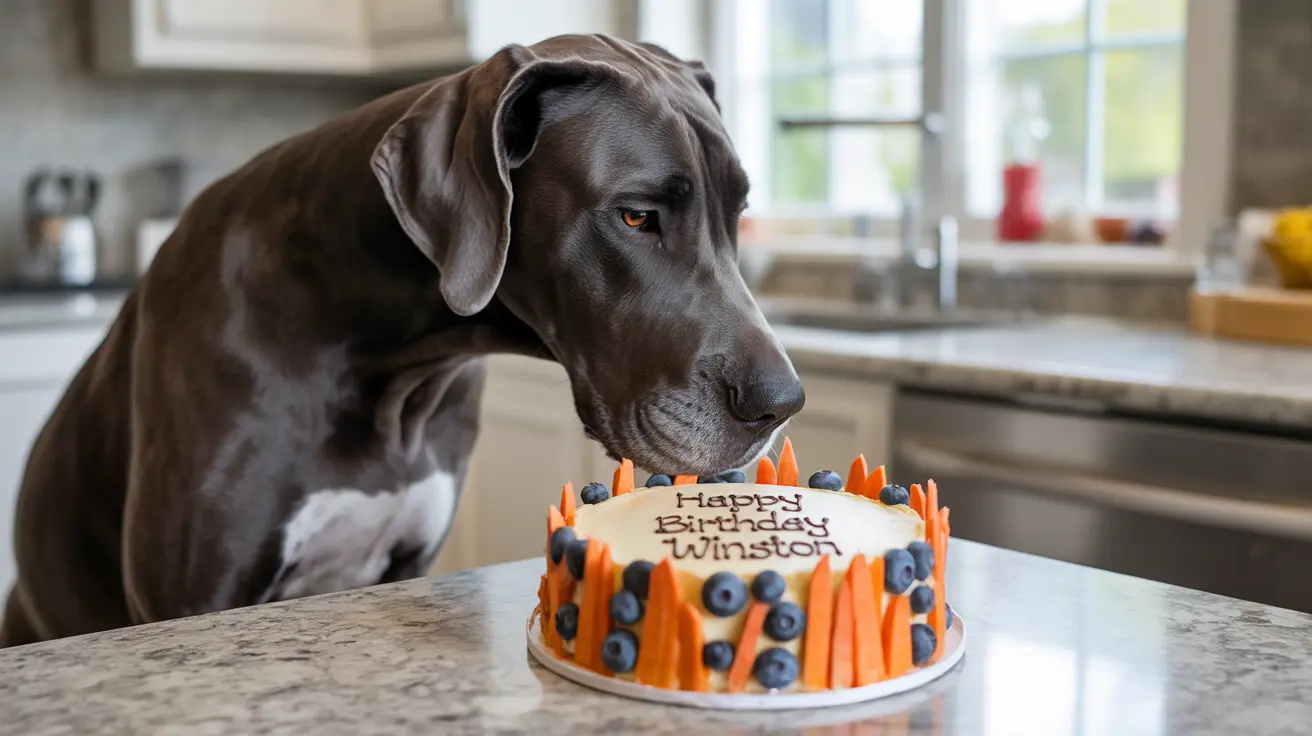Many dog owners wonder if sharing a slice of cake with their furry friend is safe. While the occasional tiny bite of plain cake might not immediately harm your dog, there are important considerations and risks to understand before offering this sweet treat to your canine companion.
In this comprehensive guide, we'll explore whether dogs can safely eat cake, what ingredients to watch out for, and how to make better treat choices for your four-legged friend. Let's dive into everything you need to know about dogs and cake consumption.
Understanding the Risks of Feeding Cake to Dogs
Most cakes are high in sugar, fats, and refined carbohydrates - ingredients that can be problematic for dogs. Even plain vanilla cake without toxic ingredients can lead to several health issues:
- Obesity
- Diabetes
- Digestive upset
- Blood sugar spikes
- Pancreatitis
Regular consumption of these empty calories can significantly impact your dog's health and well-being over time.
Dangerous Cake Ingredients for Dogs
Many common cake ingredients can be toxic or harmful to dogs:
Immediately Toxic Ingredients
- Chocolate (contains theobromine and caffeine)
- Xylitol (artificial sweetener)
- Raisins and grapes
- Macadamia nuts
- Vanilla extract (high alcohol content)
Potentially Harmful Ingredients
- Wheat flour (may cause allergies)
- Excessive sugar
- High-fat content
- Artificial preservatives and colors
When Is Cake Safe for Dogs?
While it's best to avoid giving dogs regular cake, there are some scenarios where minimal cake consumption might be acceptable:
- Plain cake without toxic ingredients in very small amounts
- Dog-specific cakes made with pet-safe ingredients
- Special occasion treats prepared by pet bakeries
Healthier Alternatives to Cake for Dogs
Instead of regular cake, consider these dog-friendly options:
- Dog-safe birthday cakes made with pumpkin or sweet potato
- Frozen yogurt treats
- Fresh fruits like apples (without seeds) or blueberries
- Carrot cake made specifically for dogs
- Commercial dog treats designed for special occasions
Emergency Response: If Your Dog Eats Cake
If your dog consumes cake, take these steps:
- Identify what ingredients were in the cake
- Monitor for immediate symptoms
- Contact your veterinarian if toxic ingredients were present
- Watch for delayed reactions
- Keep your dog hydrated
Frequently Asked Questions
Can dogs safely eat cake, and what are the potential health risks?
While a tiny bite of plain cake isn't typically dangerous, regular consumption can lead to obesity, diabetes, and digestive issues. Many cake ingredients are toxic to dogs, making it safer to avoid cake altogether.
How can I make a dog-safe cake for special occasions like birthdays?
Use dog-friendly ingredients like pumpkin, carrots, or sweet potatoes as a base. Avoid sugar, artificial sweeteners, and toxic ingredients. Many recipes use xylitol-free peanut butter or yogurt for frosting alternatives.
What ingredients in cake are toxic to dogs, and how can I avoid them?
Chocolate, xylitol, raisins, grapes, macadamia nuts, and alcohol-based extracts are toxic to dogs. Read all ingredients carefully and opt for dog-specific treats instead of human cake.
What are some healthier alternatives to traditional cake for treating dogs?
Fresh fruits, vegetables, commercial dog treats, or specially made dog cakes are healthier options. Consider frozen yogurt treats or homemade dog-safe baked goods using pet-appropriate ingredients.
What should I do if my dog accidentally eats a piece of cake containing toxic ingredients?
Contact your veterinarian immediately, especially if the cake contained chocolate, xylitol, raisins, or alcohol. Monitor your dog for symptoms and follow professional medical advice.
Remember, while it's tempting to share our favorite treats with our pets, it's always better to err on the side of caution and choose treats specifically designed for dogs.






